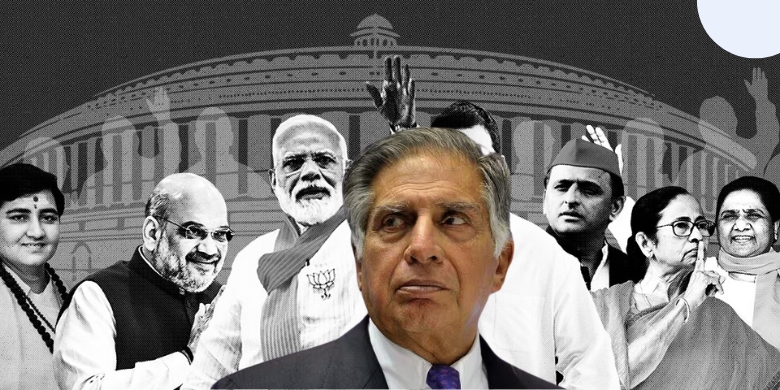Ratan Naval Tata, the former chairman of the Tata Group, is a revered figure in Indian business and philanthropy. While his contributions to Indian industry and society are well-documented, his relationship with politics has often been a subject of intrigue and speculation. This blog delves into the complex interplay between Ratan Tata and Indian politics, exploring his political affiliations, his stance on various policy issues, and the impact of political factors on his business empire.
Early Political Affiliations
Ratan Tata’s early life was shaped by his family’s political connections. His grandfather, Naval Tata, was a member of the Indian National Congress, a prominent political party during the Indian independence movement. However, Ratan Tata himself has always maintained a distance from active politics, preferring to focus on his business endeavors.
The Tata Group and Political Influence
Despite his personal aversion to politics, the Tata Group has often been caught in the crossfire of political machinations. The group’s vast business interests, spanning sectors like steel, automobiles, and software, have made it a significant player in the Indian economy. This influence has inevitably drawn the attention of politicians, who have sought to leverage the group’s resources for their own agendas.
One of the most notable instances of political interference in the Tata Group occurred during the tenure of the previous United Progressive Alliance (UPA) government. The group faced allegations of corruption and wrongdoing, leading to a series of legal battles and investigations. These allegations were widely seen as politically motivated, with some critics suggesting that the government was attempting to undermine the Tata Group’s dominance in certain sectors.
Ratan Tata’s Stance on Policy Issues
While Ratan Tata has generally avoided direct political involvement, he has expressed his views on various policy issues. He has consistently advocated for economic liberalization and globalization, arguing that these policies are essential for India’s development. He has also been a vocal supporter of corporate social responsibility (CSR), urging businesses to contribute to the well-being of society.
Tata has been critical of government policies that hinder business growth, such as excessive regulation and corruption. He has called for a more business-friendly environment to attract investment and create jobs. However, he has also emphasized the importance of ethical business practices and has condemned corporate malfeasance.
The Tata Group and Political Parties
The Tata Group has had varying relationships with different political parties over the years. While the group has often been seen as close to the Congress party, it has also cultivated ties with other parties, including the Bharatiya Janata Party (BJP). This pragmatic approach has allowed the Tata Group to navigate the complexities of Indian politics and maintain its influence across different governments.
The Impact of Politics on the Tata Group
The political landscape in India has had a significant impact on the Tata Group. The group has faced challenges due to policy changes, regulatory hurdles, and allegations of corruption. However, it has also benefited from government support and favorable policies at times.
The Tata Group’s ability to adapt to the changing political environment has been a key factor in its success. The group has diversified its business interests, invested in emerging sectors, and cultivated relationships with key political figures. This strategic approach has helped it to weather political storms and maintain its position as a leading Indian conglomerate.
Conclusion
Ratan Tata’s relationship with politics has been a complex one. While he has generally avoided direct political involvement, the Tata Group has been caught in the crossfire of political machinations. The group has faced challenges due to government policies, allegations of corruption, and the changing political landscape. However, it has also benefited from government support and favorable policies at times.
The Tata Group’s ability to navigate the complexities of Indian politics has been a testament to its resilience and adaptability. Ratan Tata’s legacy will be remembered not only for his contributions to Indian business but also for his role in shaping the country’s political landscape.



